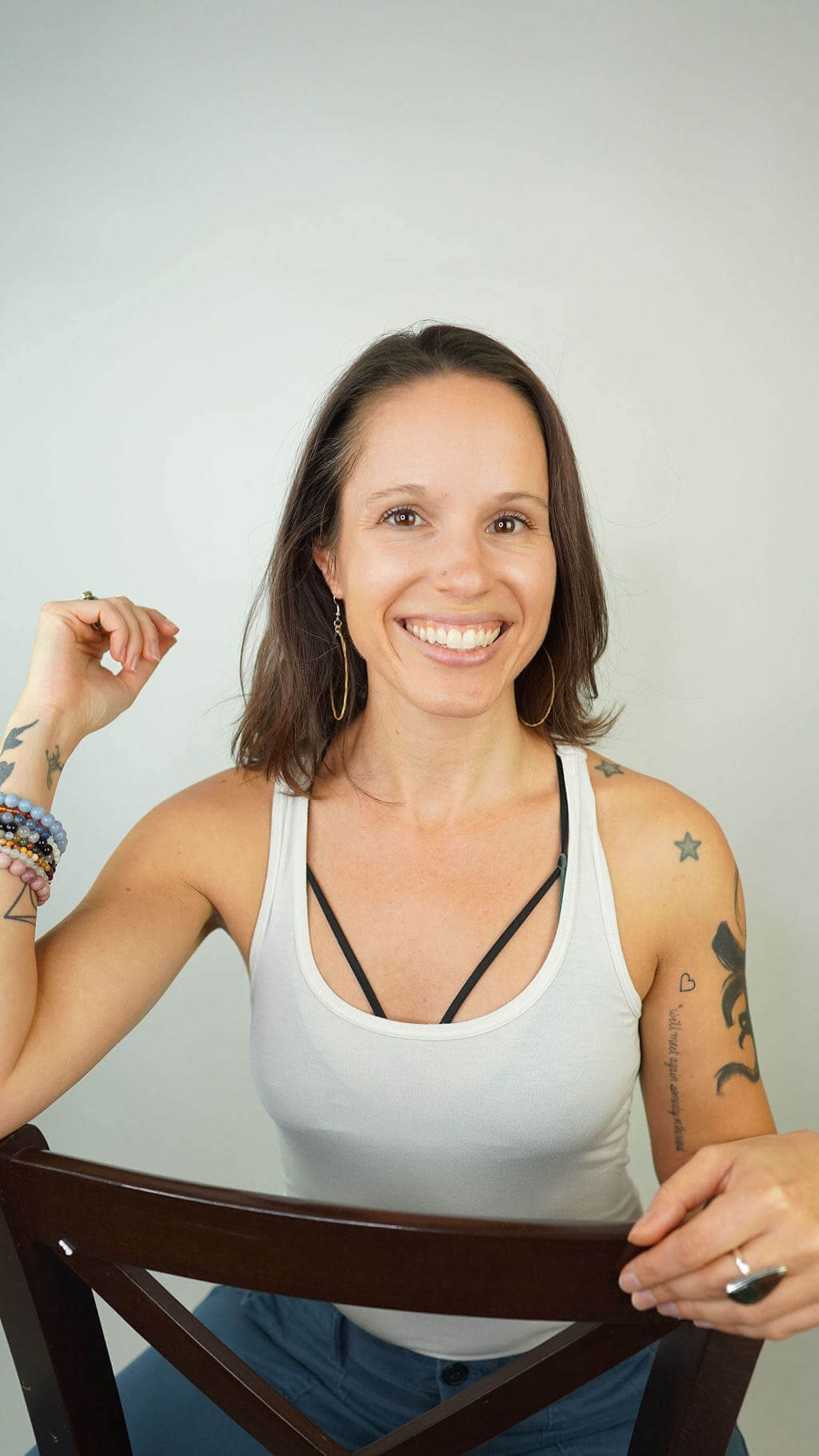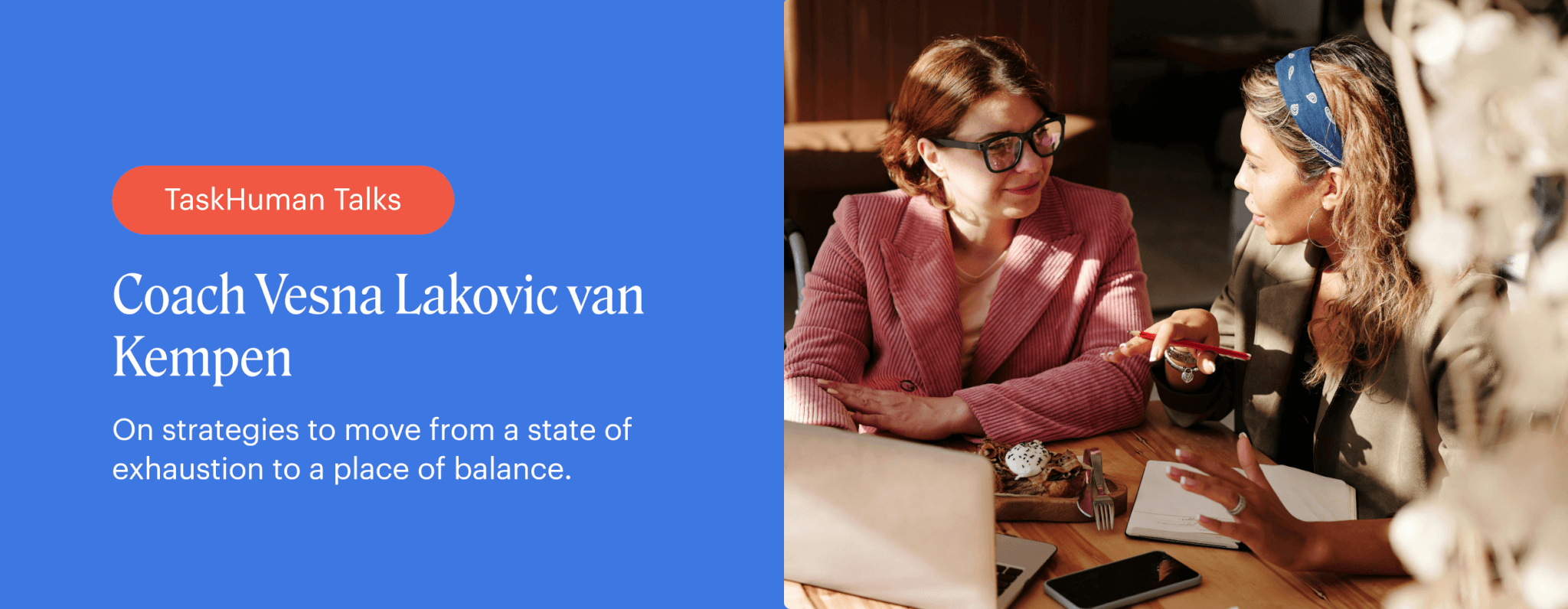




In this TaskHuman Talks Podcast episode, coaches Jamie Carroll and Vesna Lakovic van Kempen dive into a crucial topic that affects many of us: burnout. They explore what it is, how to identify it, and strategies to move from a state of exhaustion to a place of balance.
While burnout is often confused with stress, Coach Vesna shares how it can be much more serious. Burnout is a “state of emotional, mental, and physical exhaustion caused by prolonged stress.” It often manifests as chronic fatigue, cynicism, and a reduced sense of purpose at work. Stress, on the other hand, is a natural body response to challenges that can sometimes provide a boost of energy. However, if unmanaged, stress can eventually lead to burnout.
Vesna explains that burnout can also have physical symptoms that doctors may not be able to explain, such as sleep issues. Emotionally and mentally, people experiencing burnout may have difficulty concentrating and focusing.
The first telltale sign of burnout, according to Coach Vesna, is a loss of joy for things you once loved. You may feel too tired or drained to spend time with friends, go for a walk, or even make yourself food after work. Other early indicators include:
Difficulty focusing and concentrating.
Cynicism or negative feelings toward work.
Becoming edgy, impulsive, and easily annoyed by others.
A lack of patience, which can strain relationships.
Related Reading: 4 Signs That You’re Heading Toward Burnout
The first step to preventing burnout is self-awareness. Many people who are highly driven, ambitious, and perfectionistic often ignore the early signs. Vesna emphasizes the importance of pausing and being honest with yourself. “It’s okay if you’re not okay,” she says, but you must be willing to listen to the signs your body and mind are giving you.
To build this awareness, Coach Vesna suggests a few simple habits:
Monitor your reactions: Observe how you act in stressful situations. Are you getting annoyed by small things that didn’t used to bother you?
Practice mindful rituals: Slow down and perform a daily task mindfully. This could be drinking your morning coffee or going for a walk. This practice helps train your brain to be present.
According to Coach Vesna, certain common character traits can make some people more susceptible to burnout, including:
Being highly responsible and hardworking.
Struggling to set boundaries and say “no.”
Taking on too much responsibility.
Having trouble asking for help.
Being a people pleaser.
Being a perfectionist and self-critical.
Vesna also points out compassion fatigue, which is common in helping professions and among caregivers. This form of exhaustion can reduce the capacity to be empathetic and understanding toward others, impacting your relationships and leading to a sense of bitterness.
Related Reading: Using Relationships As The Key To Success In Burnout Prevention
Learning to say “no” is a powerful tool against burnout, especially in cultures and environments that glorify burnout. Vesna advises starting small and practicing with low-stakes situations. It’s important to remember that when you set a boundary, it’s okay for others to feel uncomfortable — you are simply showing them how you would like to be treated. Saying “no” can often lead to more respect from others and allow you to live with more integrity.
As Vesna wisely puts it, “You can’t pour from an empty cup.” Many people who experience burnout are used to giving, but they struggle to receive help, rest, or even positive emotions. Learning to receive is a key part of moving forward.
While burnout can be a difficult experience, Vesna shares how it can be a “triggering point in our lives that can change us in a good way.” It signals that your current way of functioning is not working and that it’s time for a radical shift. This moment can be an opportunity for self-discovery, growth, and transformation, leading to a healthier and more balanced life.
If you’re ready to get a handle on stress and burnout or simply want to learn more about how burnout impacts you, find Coach Vesna on the TaskHuman platform and book a session today.
Engage with the full podcast recording below: